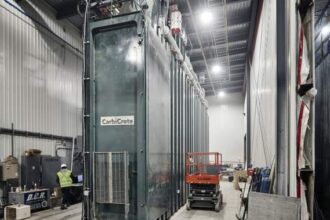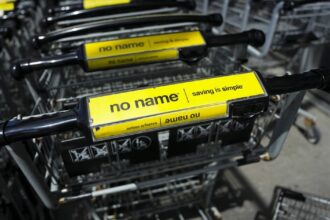In a stunning development that sent ripples through the tech investment world, Akkio, a promising no-code AI startup once backed by Microsoft’s venture fund M12, has filed for Chapter 7 bankruptcy. The Boston-based company, which raised $15 million in funding since its 2019 launch, abruptly ceased operations last week, leaving customers and industry observers scrambling to understand what went wrong.
“The competitive landscape evolved more rapidly than we anticipated,” said Jon Reilly, Akkio’s co-founder and COO, in a final message to users. The stark announcement signals how quickly fortunes can change in the hyper-competitive AI market, where even Microsoft’s blessing doesn’t guarantee survival.
Akkio’s platform promised to democratize artificial intelligence by enabling non-technical users to build prediction models without writing code. This value proposition initially attracted significant attention from investors who saw potential in bringing AI capabilities to mainstream business users. The company’s marketing positioned it as “ChatGPT for your business data” – a tagline that initially resonated in boardrooms eager to implement AI solutions.
However, the very tech giants whose tools Akkio relied upon ultimately became its fiercest competitors. As Microsoft, Google, and Amazon aggressively expanded their no-code AI offerings at lower price points, Akkio’s competitive advantage rapidly eroded. This dynamic exemplifies a growing pattern in the tech industry where startups that build on major platforms face existential risks when those platforms expand into their territory.
Industry analyst Anisha Darbari from Gartner points to broader market forces at play: “We’re seeing a natural consolidation in the AI space. The companies with the deepest pockets and most diverse revenue streams can weather the prolonged journey to profitability that AI often requires.” She estimates that nearly 35% of AI startups founded between 2019-2021 could face similar fates by year’s end.
For Akkio’s customers, the bankruptcy filing means an immediate end to services. Unlike software acquisitions where user data often transfers to new owners, Chapter 7 proceedings typically result in complete service termination. The company has advised customers to export their data immediately, though many report difficulties accessing the platform since the announcement.
This failure highlights the precarious position of AI startups caught between the enterprise giants and changing market expectations. While venture capital flowed freely into AI startups during the pandemic boom years of 2020-2021, investors now demand clearer paths to profitability and defensible market positions.
“Building on top of foundation models is increasingly a tough business proposition,” explains venture capitalist Maria Hoffman of Sequoia Capital. “The margins get squeezed from above by the model providers and from below by customers expecting AI to become continuously cheaper and more accessible.”
The collapse of Akkio serves as a sobering reminder that in the rapidly evolving AI landscape, even Microsoft’s backing doesn’t guarantee success. As the industry continues its maturation phase, we’re likely to see further consolidation as stronger players absorb talent and technologies from those unable to establish sustainable business models in a market increasingly dominated by tech giants.
For more technology industry coverage, visit CO24 Business and stay updated on breaking tech news at CO24 Breaking News.










